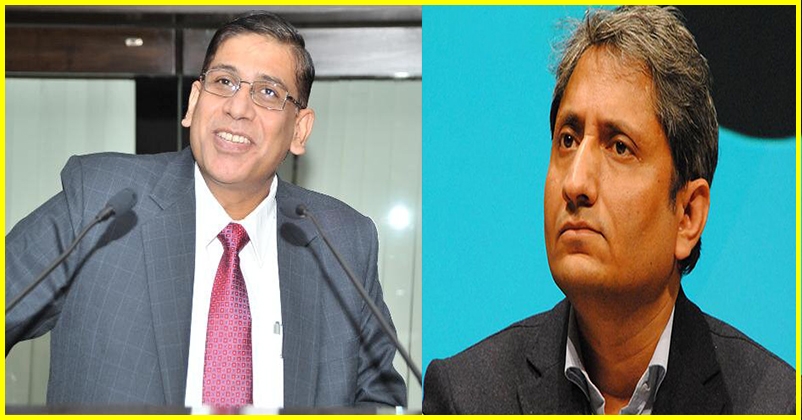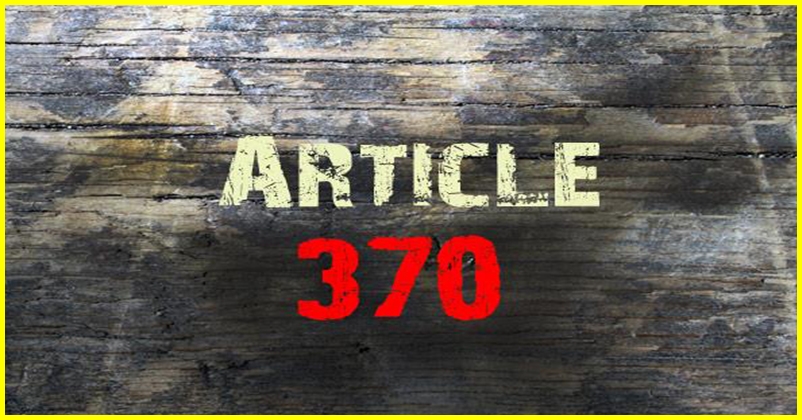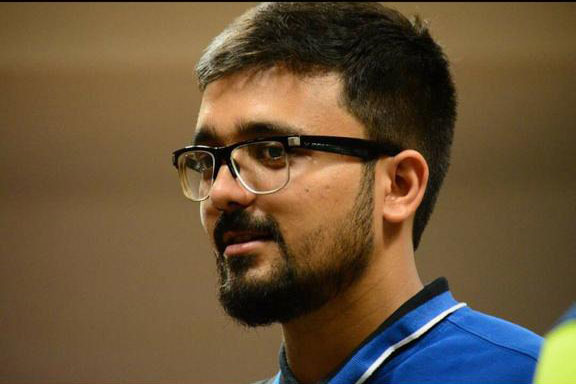A reply to Dr. Faizan Mustafa and Mr. Ravish Kumar: The Truth and Untruth about Article 370
| 19-Mar-2019 |

Partisan Media?
On 25th February 2019, NDTV’s Prime Time with Ravish Kumar hosted a discussion with the renowned academician Professor Dr. Faizan Mustafa on the status of Jammu and Kashmir under the Indian Constitution. Flagging the views expressed by Shri Arun Kumar, Expert on Jammu and Kashmir under the Indian Constitution, Mr. Ravish Kumar sought Professor Mustafa’s response on these views. Although a fair debate would have required NDTV to invite Shri Arun Kumar for the discussion, his absence shows that NDTV was more inclined to have him condemned unheard. After all, free speech and open discussion remain the eminent domain of the media and not individual citizens.
Admitting that public discourse about Article 370 is seemingly misinformed, Shri Ravish Kumar failed to understand that a partisan media today is one of the reasons for politically polarized views on Jammu and Kashmir. By questioning Shri Arun Kumar’s views ex-parte, NDTV lost the opportunity of dispelling these notions as it did exactly what the situation in Jammu and Kashmir should not avoid—a heterogeneous discussion that informs public opinion. If NDTV sincerely believed that consensus building is the first step towards resolution of the conflict in Jammu and Kashmir, it should have made genuine attempts to ensure heterogeneity in its discussion and allowed the public to learn heuristically from it. However, NDTV opted to act otherwise.
Nothing special about Article 370
Having said that, I would now take liberty to respond to a few statements made by Professor Faizan Mustafa on the special status of Jammu and Kashmir. He claims that Article 370 is a special provision in respect of Jammu and Kashmir by reason of its emplacement under Part XXI of the Constitution, which deals with Temporary, Transitional, and Special Provisions. The logic behind this argument is premised upon the positioning of Article 370 under Part XXI of the Constitution, the heading of which reads as “Temporary, Transitional, and Special Provisions”. Attractive at first blush, Professor Mustafa’s reasoning to justify Jammu and Kashmir’s special status lacks merit and is as obscure as the use of expression “special provision” under Article 370. The marginal note to Article 370 expressly indicates that Article 370 is temporary in nature.
Using the heading to Part XXI to justify the special nature of Article 370 ignores the constitutional scheme envisaged by Part XXI. Part XXI of the Constitution consists of several provisions — which may either be transitory, temporary or special in nature. Many of these provisions such as Article 371-A, 371-B, 371-C, 371-D, 371-F, 371-G and 371-H explicitly recognize the special status accorded to several states under the Indian Constitution. On the other hand, there are a few transitional provisions such as Article 372 and 372-A under Part XXI, which empower the President to make adaptations or modifications in certain laws for the purpose of making them consistent with the provisions of the Constitution. The rationale behind these transitory provisions is simple—certain laws inconsistent with the Constitution could not be changed overnight by the legislature. In view of this difficulty, it was felt imperative that the Executive should be clothed with the legislative powers of making changes in these laws to ensure their systematic integration with the Indian Constitution through a process of smooth transition.
The discussion just made shows that several provisions of different nature i.e. temporary, transitional and special nature were incorporated under Part XXI of the Constitution. The scheme of Part XXI, therefore, explains the raison d'être of naming Part XXI as “Temporary, Transitional, and Special Provisions”. As such, the nature of each provision under this part was to be determined by reference to its express language, in the first place and its marginal note, in case of any ambiguity. If Professor Mustafa’s argument is taken to its logical end and the nature of each provision under Part XXI is determined by reference to the heading of Part XXI, then every article under Part XXI would be termed as temporary, transitional and special. Such absurd results were never intended by the founding fathers of our Constitution for the distinction between temporary, transitional and special provisions has been specifically engrafted under Part XXI.

Cultural or Secessionist Claims?
The second claim made by Professor Mustafa pertained to the similarity between permanent residents living in J&K and tribal population living in northeast and hilly areas. According to him, the exclusionary property rights given to permanent residents of J&K closely resemble the equivalent rights given to scheduled tribes in India. To buttress his argument, he also highlighted that historically, exclusive property rights were given to permanent residents of J&K for the purpose of saving them exploitation from outsiders who, in the absence of such exclusive policy, would purchase property and settle in the State. Professor Mustafa’s arguments based upon the principle of equivalence ignore a few basic differences between property rights guaranteed to permanent residents and tribal population. The proposition steers dangerously on the verge of turning India into a confederation of States rather than a Union.
The restriction on property rights in tribal areas is based on the strong relationship between their property rights and culture. For tribal population, land is their most important asset from which they derive their sustenance, social status, economic and social equality, and family unity. However, with the migration of non-tribal population to tribal areas, tribes came into contact with non-tribal immigrants who, with limited means, came in large number in search of livelihood and settled down in the tribal areas and acquired large agricultural holdings.
Being primitive and unsophisticated, the tribal population used to sell their land to non-tribal immigrants for short-term economic gains. Since land was the cultural anchor for tribal population, acquisition of land by outsiders in tribal areas started bringing cultural changes to these regions. In this perspective, the Constitution framers inserted special provisions for tribal areas to prevent them from selling their cultural cohesion to outsiders for short-term economic benefits.
For permanent residents living in J&K, it is not evident that the constitutional framework applicable to tribal population can be extended to permanent residents. Unlike, tribal areas, there is no historical evidence in respect of Jammu and Kashmir to show that exclusive property rights were anchored in preservation of cultural indegenity of the region or that immigration had an impact on the property rights of permanent residents. On the other hand, the definition of State Subjects (now known as “permanent residents”) adopted by Maharaja Hari Singh in 1927 for the purpose of reserving exclusive property rights etc. for permanent residents included persons who have acquired immovable property under an ijazatnama (permission) and have executed a rayatnama (residence permit) after ten years continuous residence, to acquire status of State Subjects.
This class of persons was known as State Subjects of Class III. Unfortunately, Section 6 of the Jammu and Kashmir Constitution, 1956 subsequently altered the position by excluding such class of persons from the definition of permanent residents. With the adoption of Jammu and Kashmir Constitution, only State subjects belonging to Class I and II were entitled to acquire, purchase or sell property in the State. Broadly, State Subjects of Class I and II were those people who settled in the State before a certain cutoff date and resided permanently therein after acquiring immovable property.
Thus, with the adoption of Section 6 of the Jammu and Kashmir Constitution, nobody except for a State subject belonging to Class I or Class II could acquire immovable property in the State. Article 35A and a host of different legislations passed by the State Legislature have the effect of giving such exclusive rights to permanent residents. As such, the current framework makes no provision for the acquisition of permanent residency in the State.
The foregoing account, thus, shows that the definition of State Subjects was manipulated with the intention of invidiously discriminating against non-permanent residents without any historical basis. Historical co-existence of the property rights in favour of State Subjects of Class I and II, on one hand and State Subjects of Class III on the other hand discredits any argument on the incompatibility between giving such rights to non-permanent residents and ostensible cultural claims raised by Kashmiris. Claims of cultural imperialism used by Professor Mustafa to argue that dismissal of cultural rights of indigenous people in a federal country would lead to secession do nothing but lend credibility to secessionist dispensations plaguing J&K.
The parallel from tribal regions drawn in support of exclusive rights for permanent residents fail to appreciate that policies pursued by the two are distinct. While the prohibitions on land alienation in scheduled tribal areas is to discourage immigration, preserve culture and ensure economic empowerment of tribals, such prohibitions in Jammu and Kashmir are discriminatory and genocidal of equal protection guaranteed to Indian Citizens. Albeit with more limitations, acquisition of property rights by outsiders was permissible during Maharaja’s rule in the State.
Need for a balanced discourse
While expressing strong reservations against the exclusionary policy in vogue in J&K, it is painstaking to see that renowned academicians such as Professor Mustafa have no faith in our robust constitutional foundations. There is no doubt that cultural claims are required to be respected but it is equally true that tensions between indigenous cultural rights and rights of individual people should be resolved with caution.
Rights of indigenous people cannot be used as a pact to abolish basic constitutional rights of citizens. A balance between such rights will be the most ideal expression of both these competing rights. Analogously extrapolating characteristics of tribal regions where political and cultural autonomy has been respected for decades to other regions without a nuanced appreciation of their history is a risky proposition—one that would make India a confederacy instead of a Union of States.
